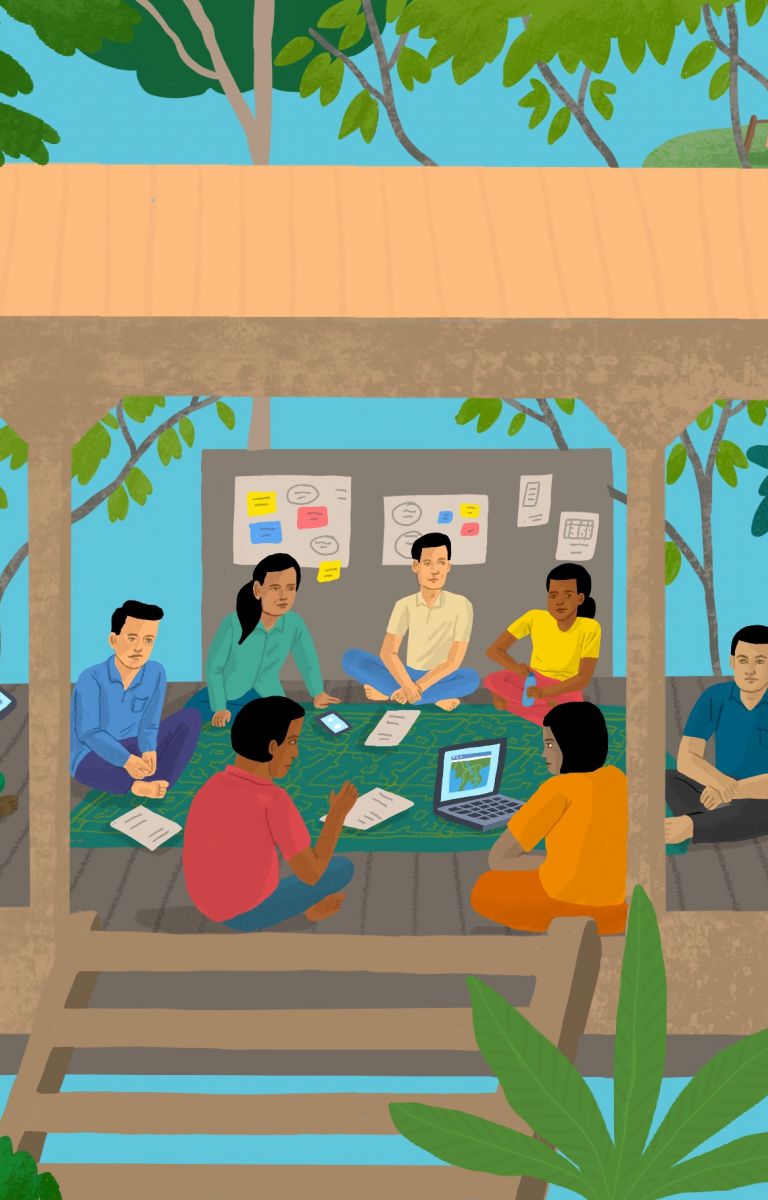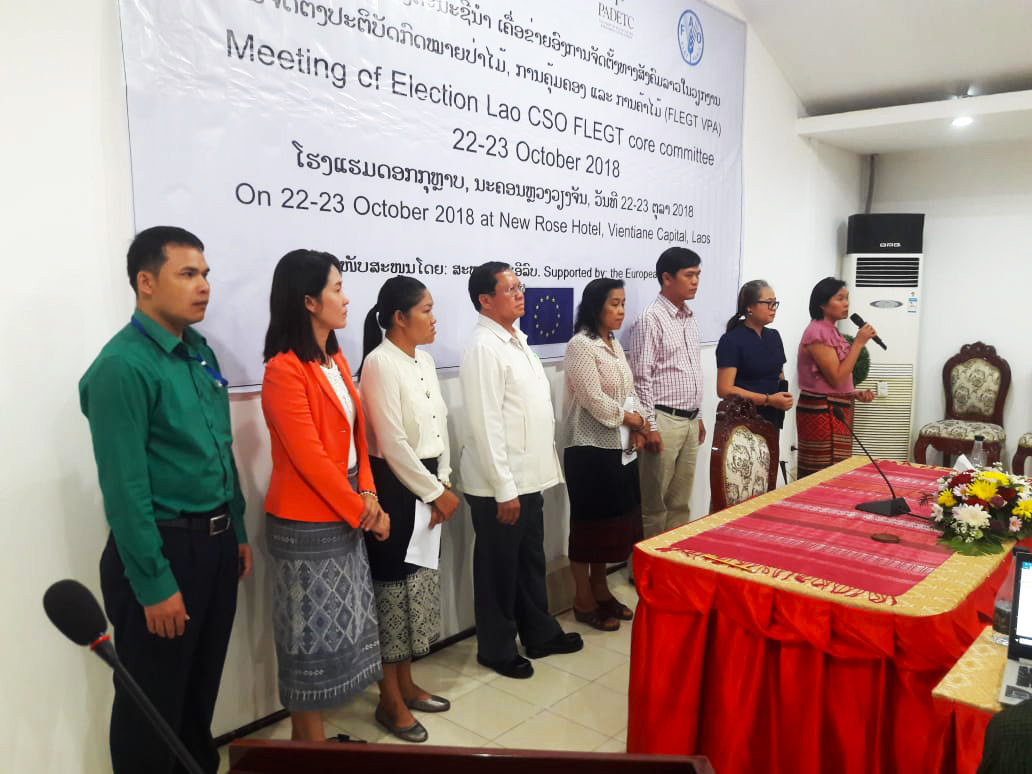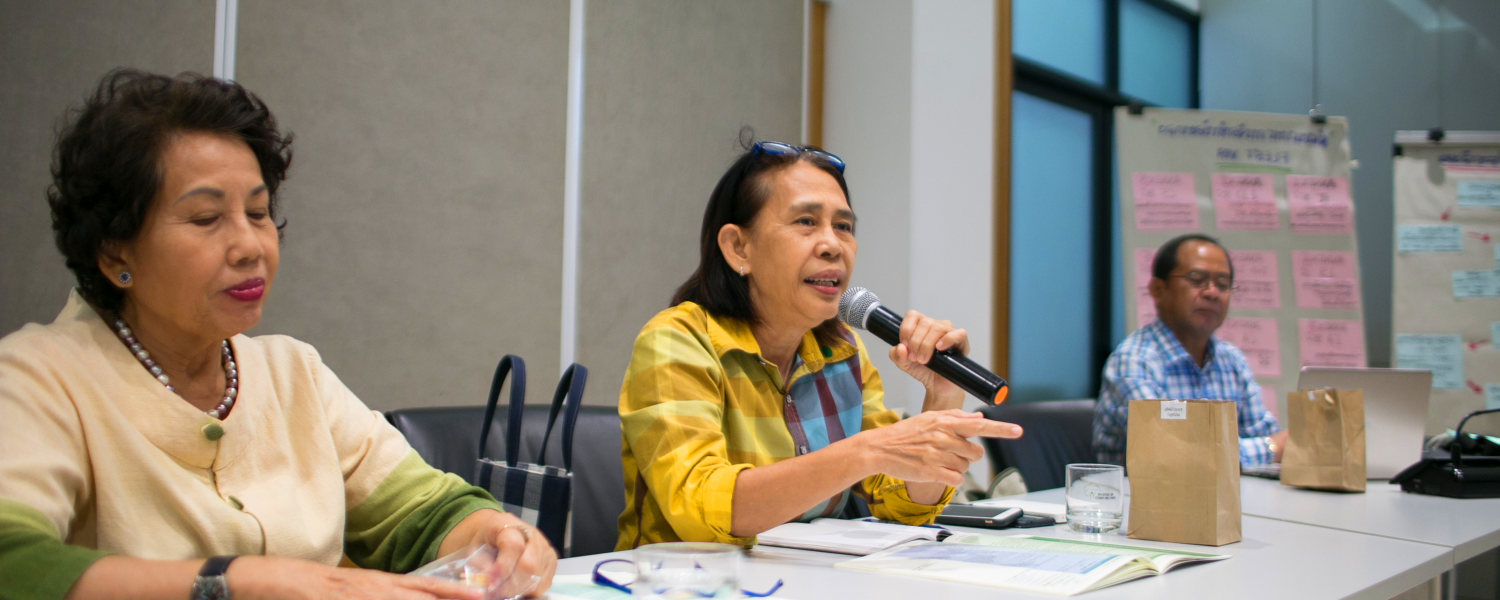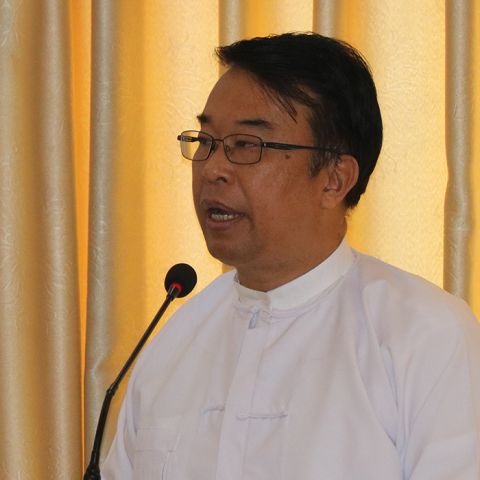

In 2015, when it became clear that Lao PDR and the European Union would begin negotiating a FLEGT VPA, a group of 20 civil society organizations in Lao PDR came together to form a new network. They include RECOFTC’s partner in the V4MF project, the Lao Biodiversity Association. The network members chose five of their number to represent civil society interests in the VPA negotiations through their participation in the VPA National Steering Committee, the National Support and Development Committee and the Technical Working Group.

Since then, this ‘CSO FLEGT Network’ has been able to influence the content of the VPA’s draft technical annexes that will be used to define legality. The government also accepted the network’s proposal about compensation for villagers when timber is harvested from production forests in areas where village forests are located.
Building connections
In Lao PDR and across the Mekong region, civil society organizations are influencing legal and policy reforms despite considerable barriers. In Myanmar too, for example, while the government is opening up to outside input it is still in the stage of informing and consulting with civil society organizations, rather than sharing power with them.
“One reason is a lack of trust between government and civil society organizations,” says Maung Maung Than of RECOFTC. “Most government officers think civil society organizations are activists that oppose the government's actions. Civil society organizations also assume that the majority of government staff just want to maintain the status quo. It will take time to share power with civil society organizations in decision-making within the forestry sector. We may need the promulgation of legal instruments enshrining the rights and responsibilities of civil society organizations participating in the development of the forestry sector.”
“Another issue is the lack of appropriate platforms through which the government and civil society organizations can work together,” he says. “We also need a nationwide network of civil society organizations covering the whole of the forestry sector. There are many ad hoc networks in Myanmar, but their synergy is questionable. With a functioning network at the national level, the voices of civil society organizations would be more effective.”

Communication challenges
In Thailand, despite some progress in the laws to reflect the acceptance of existing forest communities, there is still limited involvement of civil society organizations in improving and revising forest-related laws, says Direk Kruajinli, project coordinator at the Raks Thai Foundation.
“Feedback sessions during platforms meant for making amendments are usually very short, exclusive, and non-participatory,” says Kruanjinli. “Even with the creation of online platforms to diversify feedback participants, most of the community members directly affected by the forest laws are indigenous communities with language barriers as well as limited access to internet services and phone signals.”
Even if it was easier to participate, local communities would struggle to do so in a meaningful way as they have limited knowledge of their rights, and of laws, policies and their potential impacts.
“Communities that are directly affected by these policies and laws lack, for the most part, the opportunities to access information and analyze the impacts on their communities and natural resources,” says Kruajinli.
A recent RECOFTC survey to determine the impact of COVID-19 on forest communities found that most were struggling to access the internet in order to get vital news and information. Two-thirds of respondents said they had an unstable mobile internet connection, and more than 17 percent said they have no internet connection at all. Others were unable to fully use internet technology for work because they couldn’t afford it or lacked knowledge about online conferencing and other web tools.
But there are wider communication challenges too. Kruajinli says legal reforms tend to succeed when they have a groundswell of support from middle class citizens. But, he says, these people tend to have weak connections with nature and little interest in the rights of forest communities.
“The common perception is that local communities cause forest degradation and loss.”
Kruajinli says that to generate greater social acceptance of the need for policies that support communities that depend on forests, it will be essential to generate and communicate robust research on the positive outcomes that arise when communities can manage local forests.

It will take time to share power with civil society organizations in decision-making within the forestry sector.
Maung Maung Than
Capacity gaps
One word that everyone mentions is ‘capacity’. Civil society groups across the Mekong region need more knowledge, skills and resources to organize themselves, share information, develop policy positions, present their concerns and solutions, and monitor implementation of laws and policies. Capacity gaps include the practical, such as skills for facilitation, communication, advocacy and conflict resolution. But they also include the technical, as civil society groups need to understand complex issues and their roles in specific processes.
“We sometimes lack capacity to take part effectively,” says Hoang Xuan Thuy of PanNature. “Sometimes we lack the human resources and financial support needed to conduct consultations so we can generate evidence and get comments from the ground. Sometimes we do not provide strong comments, so it is easy for government agencies to ignore us. Even working in a network, our organizations often speak individually not with a stronger collective voice.”
For David Ganz, executive director of RECOFTC, so much will depend on continuing participation by civil society organizations in a spirit of unity.
“Civil society’s voice has been critical in the last two to three years as almost every Mekong country has gone through legal reform processes,” he says. “They’ve been crucial in shaping reforms and they need to stay involved as reforms move to being enacted. It is even more crucial that civil society voices continue to participate and do so in united ways.
